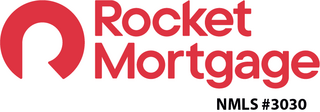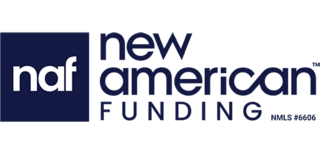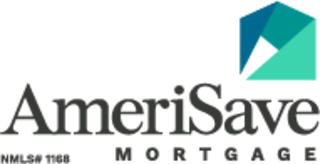How Much House Can I Afford?
Buying a home can be an exciting journey. It's one of the largest investments you'll make, and it's the key to building long-term wealth. Your first steps in that journey are determining exactly how much house you can afford and setting a budget.
Many factors determine how much you can afford, including your credit score, the type of mortgage you choose, your down payment and your monthly income. Understanding how these factors determine what you can afford is an essential part of the process, especially for first-time homebuyers. Use our mortgage calculator to get the information you need to start your homeownership journey on the right path.
In this guide, we’ll cover:
- How much home can I afford?
- How to calculate your home affordability
- Factors affecting home affordability
- Ways to improve your house affordability
- FAQs about home affordability
- Latest news on home affordability
How Much Home Can I Afford?
Purchasing a home is a decision that will impact your finances for years to come. To avoid winding up with a home loan you can’t afford, calculate your monthly income and expenses carefully before you take the plunge.
How much house you can afford will largely depend on:
- Your loan amount, mortgage rate and loan term
- How much you have saved for a down payment
- Your gross monthly income
- Your annual income
- Your total monthly debt or monthly expenses, including credit card debt, student loan payments, car payments, child support, alimony and other expenses
- State property taxes, which are paid annually or biannually and vary by state
- Current mortgage rates and closing costs, which vary by location
- Homeowner’s association (HOA) and condo fees for the home you're purchasing
Most homebuyers take out a conventional mortgage loan. These loans typically require a down payment of no less than 3% of the property value, a minimum credit score of 620, a debt-to-income ratio of 36% and a monthly payment that doesn’t exceed 28% of the buyer’s pre-tax income.
Lenders will also consider a buyer’s ability to pay all the fees and upfront costs associated with buying a home, such as closing costs and insurance fees. Your down payment also plays a big role. If you’re able to come to the table with a large down payment, it can increase your buying budget (as it means you need to borrow less and can therefore go further up in price). The interest rate you qualify for — which relies heavily on your credit score — also factors in.
Keep in mind that there are other loan types you may qualify for that have fewer restrictions and provide other benefits. Our best mortgage lenders page provides reviews for different lenders that may meet your needs.
How much house can I afford with an FHA loan?
Depending on your current financial situation and your credit score, a loan insured by the Federal Housing Administration — known as an FHA loan — can give you the opportunity to purchase a home with fewer restrictions than a regular mortgage.
FHA loans feature maximum qualifying ratios of 31/43 for most applicants with a credit score higher than 500 — this means that no more than 31% of your income should go to housing costs, while 43% should be allocated to total debt. Most loans require a 28/36 ratio. This makes FHA loans ideal for those with lower incomes or shorter credit histories.
If your credit score is over 580, you may be allowed to have a ratio as high as 40/50 with this type of loan, as long as you meet other requirements. Typically, you’ll need what are called “compensating factors.” These are financial factors that reduce your risk of default and can include things like a particularly flush savings account, significant additional income, a very large down payment or an especially high credit score.
Borrowers with a credit score of 580 or higher can also pay as little as 3.5% down, lower than the typical 10% required for scores below this threshold.
You should also be aware of the maximum loan amounts associated with FHA loans. For a single-family home, the maximum limit varies by county, ranging from $541,287 in low-cost areas to $1,249,125 in high-cost areas. In most areas, the loan limit is $832,750. Here's a look at the full scope of borrowing limits:
| One unit | Two units | Three units | Four units | |
|---|---|---|---|---|
Maximum limit in low-cost areas: | $541,287 | $693,050 | $837,700 | $1,041,125 |
| Maximum limit in high-cost areas: | $1,249,125 | $1,599,375 | $1,933,200 | $2,402,625 |
How much house can I afford with a VA loan?
While the maximum debt-to-income ratio is 41% under VA loan general guidelines, the VA backs loans for borrowers with higher ratios, provided they meet other requirements. VA loans don’t have credit score requirements (although the credit score will still affect the borrower’s interest rates) and borrowers can qualify for a 0% down payment.
These loans are only for active U.S. military members, veterans and their qualifying spouses. You’ll also need to meet certain days-of-service requirements to be eligible.
How much house can I afford with a USDA loan?
USDA loan terms for qualifying rural areas are more flexible than those for conventional loans. They don’t require a down payment and can include the mortgage insurance fee in the loan. This means you can finance up to 102% of the home's value and avoid paying the fee upfront.
Keep in mind, however, that there are income-eligibility parameters (borrowers must earn no more than 115% of the median household income) and parameters for the house's price and size. Even if you can afford a certain amount, the eligibility might be for a less expensive home.
In order to see these requirements in detail, you can go to the USDA website and look at the qualifying areas and income by county. Generally, only rural and some suburban areas will qualify.
How to calculate your home affordability
Before you start scrolling through real estate listings, come up with a price range of what you can afford. Money’s home affordability calculator above spits out estimates based on either your debt-to-income ratio or your estimated budget.
Once you’ve plugged in all your info, you’ll get an estimated number for the maximum amount you can pay for a house, plus your estimated monthly mortgage payment.
1. Know the factors that affect home affordability
Mortgage rates
The interest rate you qualify for plays a big part in your budget. It affects both your monthly payments and the loan's long-term costs.
Current mortgage rates will affect what rate you can get, but personal factors — like your credit score and down payment — will play even bigger roles. Generally speaking, the better your score and the more you put down, the lower your interest rate will be.
Affordability can also be influenced by whether you choose a fixed-rate or adjustable-rate mortgage, the length of your loan term and the type of mortgage product you use. VA and FHA loans, for instance, tend to have lower rates than conventional loans (because they have government backing that lowers lenders' risk). Short-term loans also tend to have lower interest rates.
Credit scores
Your credit score is another important factor in determining how much house you can afford. Credit scores influence everything from your interest rate to your approval odds — maintaining a good score (typically 620 or higher) can lead to more favorable loan terms and make homeownership more achievable.
You can check your credit score through any of the three credit bureaus — Experian, Equifax or TransUnion, or you can check with your bank or credit card issuer. Many will offer free credit score monitoring as part of their monthly services.
Income
The amount of money your household brings in each month is one of the main things lenders look at when you apply for a mortgage. Your lender will also want to see consistent income to ensure you can reliably make your monthly payments.
Remember, though, that just because you can get a loan doesn’t mean you should, and it’s your responsibility to take a look at your entire financial picture (and whether paying for the house you’re interested in is doable with your budget) before signing on the dotted line.
Home value
Home value influences purchase price, down payment requirements, loan amounts, property taxes, insurance costs and ongoing maintenance expenses. Carefully consider the long-term costs of owning each potential property you’re eyeing.
Debt-to-income ratio
The debt-to-income (DTI) ratio is a metric mortgage lenders use to determine whether you qualify for a mortgage and the size of the loan you can secure. Not only do mortgage lenders have maximum DTIs you’ll need to fall under to qualify, but your DTI can also impact how much you’re able to borrow and the rate you get, too. Lower DTIs will likely get you more favorable terms.
Use this DTI calculator to understand what numbers you’re working with. If your DTI is too high to qualify, consider paying down debts or taking on extra hours or freelance work. This can increase your income while lowering your DTI.
Property taxes and insurance
Property taxes and homeowners' insurance can add a sizable amount of money to your recurring home expenses. You’ll usually pay a portion of them each month as part of your monthly payment (this is called “escrow”). The lower these fees, the lower your payment will be — and the bigger budget you’ll have.
In most cases, if your down payment is less than 20% of the home’s purchase price, you’ll be on the hook for private mortgage insurance (PMI). This is also paid monthly along with your mortgage payment.
Homeowners association (HOA) fees
Some homeowners pay a mandatory monthly fee to their local homeowners association (HOA), which goes towards the maintenance and repair of shared areas (pools, landscaping, elevators and the like). If the house you want to buy has an HOA, don’t forget to factor this into your budget, too.
2. Don't overextend yourself
Make sure you can comfortably afford the monthly mortgage payments. A general rule of thumb is that no more than 30% of your pre-tax income should go toward housing costs, though this can vary by lender.
At one point, lenders used the 28/36 rule to assess a borrower's ability to afford the loan. Under this rule, housing expenses should take up 28% or less of your gross income. Your total debt payments, including credit card, other loans, and mortgage payments, should not exceed 36%.
In concrete terms, the 28/36 guideline means that a borrower earning $5,000 per month should not spend more than $1,400 on housing costs.
If you’re a renter making $5,000 a month, it’s a good rule of thumb to spend a maximum of $1,400 on rent. However, for a homeowner making the same amount, $1,400 (28%) should cover your monthly mortgage payment, homeowners' insurance, mortgage insurance and property taxes.
The 28/36 rule may help prospective buyers determine the housing payment they’re comfortable with. But, many lenders will determine your ability to afford a new home by using a higher total debt limit of 50% for conventional loans and 43% for jumbo loans. FHA and VA loans will have different limits.
3. Check your credit score
It’s important to request your credit report and find out your credit score before you start the application process.
Your credit score is a three-digit summary of your creditworthiness. Borrowers with high credit scores will typically be offered the lowest interest rates, while those with lower scores will be offered higher rates.
You can get a free credit report once per year from each of the three major credit bureaus. You may also access your credit report for free under certain conditions, for example, if you’re the victim of identity theft.
Additionally, a CARES Act program that provided free weekly reports from the three major credit bureaus has been permanently extended.
4. Calculate your debt-to-income ratio
Your debt-to-income ratio (DTI) compares how much debt you owe to how much pre-tax income you earn per month. It’s an important metric that lenders use to determine how much you can borrow — or if you can borrow at all.
Lenders prefer borrowers with DTIs below the maximum allowed and may offer better interest rates to those borrowers. You can input your information and calculate your DTI using Money’s debt-to-income ratio calculator.
5. Make a down payment
If you don’t qualify for a VA loan, USDA loan or other 0% down payment mortgage program, most buyers will have to give a down payment on their potential home. Conventional loans typically require a minimum down payment of 5% of the purchase price. However, it could be as little as 3% if you have a low DTI ratio, a high credit score and meet other requirements.
For FHA loans, the minimum is 3.5%. While not required, a 20% down payment is often ideal. This could:
- Lower your loan-to-value ratio
- Reduce your monthly mortgage payment
- Qualify you for a lower interest rate
- Help you avoid private mortgage insurance (PMI)
If you don’t have enough money for a 20% down payment, you may be able to refinance your mortgage down the road, remove PMI, and, depending on the real estate market, snag a better interest rate. (For more info on refinancing, check out our list of the best mortgage refinance lenders and our mortgage refinance calculator.)
Ways to improve your house affordability
There are several options to consider if you are struggling to afford the home you have your eyes on. Some steps must be taken over time, whereas others will immediately affect your mortgage application.
Lower your DTI
DTI is one of the most important factors lenders consider when evaluating borrowers. Lowering your DTI by paying off as much debt as possible is a good option if your DTI is too high to get pre-qualified for a reasonable interest rate (or to qualify at all).
An optimal DTI is 36% or below, including possible housing costs, but excluding current rent payments, if any. If your monthly income is, for example, $5,000, then you shouldn’t owe more than $1,800 per month.
If your current debt is about $600 per month, your housing expenses could be $1,200 per month. Also, if you have already calculated all the expenses for a house and come up with a certain number, say $1,450, you should try to cut your $600 monthly payments by $250 to improve your chances of getting a loan.
Reducing your debts is your best bet for lowering your DTI, but increasing your income can help, too. You may want to ask for a raise or take on a side gig to help.
Raise your credit score
There are several ways to improve your credit score. First, it’s important to check your credit report from all three bureaus — Experian, TransUnion and Equifax — for inaccuracies. If there are mistakes in your credit history, you can file a dispute with the credit agencies. They are legally required to address any inaccuracies promptly, which should improve your score.
If the information being reported is accurate, make sure to resolve any collection attempts, pay your bills on time every month and, if possible, reduce your overall credit card debt. The higher your credit score, the lower your interest rate and monthly payment.
Consider applying for federal loans
The type of mortgage you’re requesting will help determine a lender’s flexibility in evaluating your loan application. Loans insured by the federal government — such as FHA loans, VA loans and USDA loans — all have certain benefits that may help you afford the home you want.
FHA loans
FHA loans are insured by the Federal Housing Administration. This means that banks get paid even if you default on your mortgage, and so are likely to be more flexible with their credit and down payment requirements. Note that, in order to qualify for an FHA loan, the borrower must intend to use the house as a primary residence and live in it within two months after closing.
VA loans
Borrowers who have served or have certain military connections may qualify for a VA loan. VA loans are more lenient than conventional and FHA loans. They are backed by the Department of Veterans Affairs and typically don’t require a down payment unless you’re borrowing a particularly large amount.
Eligibility requirements depend on the period and amount of time you served in the military. However, there are many ways to qualify whether you’re a veteran, active duty service member, reservist or member of the National Guard. There are also opportunities for discharged members.
To read more about the qualifications and process for getting a Certificate of Eligibility, visit the U.S. Department of Veterans Affairs. And if you’d like to explore your VA loan options, visit our best VA loans page.
USDA loans
USDA loans are backed by the U.S. Department of Agriculture and offer certain benefits that conventional loans don’t.
They’re designed to help finance homes in eligible rural areas. The desired property must be located in specific geographic areas, generally outside the boundaries of major metropolitan centers. It must also be a primary residence with a relatively low cost.
If you are eligible, USDA loans offer several benefits, including the ability to build, rehabilitate, improve, or relocate a dwelling as your primary residence to a new location. They also require no down payment.
Latest news on housing affordability
The affordability crisis that has plagued prospective homebuyers has eased somewhat over the past few months, opening a window of opportunity for those who are financially ready.
Mortgage rates have been trending lower since the end of May. According to Freddie Mac, the average rate for a 30-year mortgage has decreased by nearly three-quarters of a percentage point, a large enough decline to reduce monthly payments by $100 or more, depending on the loan amount.
Lower rates are also a boon for homeowners who bought property in 2023 or 2024, when mortgage rates were at 7% or higher. Refinancing into today's much lower rates can reduce monthly payments and free up cash to cover other expenses.
With most experts forecasting that mortgage rates will remain stable in 2026, buyers who have been waiting on the sidelines may finally be able to afford a home.
Home Affordability FAQs
How much money do I need for a down payment?
How will interest rates affect your home loan?
How do I calculate my home affordability based on my income?
What are the actual monthly costs of owning a home?
Summary of Money’s guide to home affordability
How much house you can afford depends mainly on two factors: your eligibility for a mortgage loan and your actual budget when it comes to paying a monthly bill, along with taxes and insurance. Remember these steps when you’re getting ready to make your home purchase:
- Calculate your monthly debt and compare it to your monthly gross income to get an idea of your DTI.
- Consider other monthly expenses, such as utilities and groceries.
- Save up for a down payment.
- Consider all your loan options, such as FHA and VA loans.
- Use a mortgage calculator to avoid any surprises.













